If A Woman Uses These 11 Phrases As She Gets Older, She Doesn't Care One Bit What You Think Of Her
She's tired of trying to fit in.
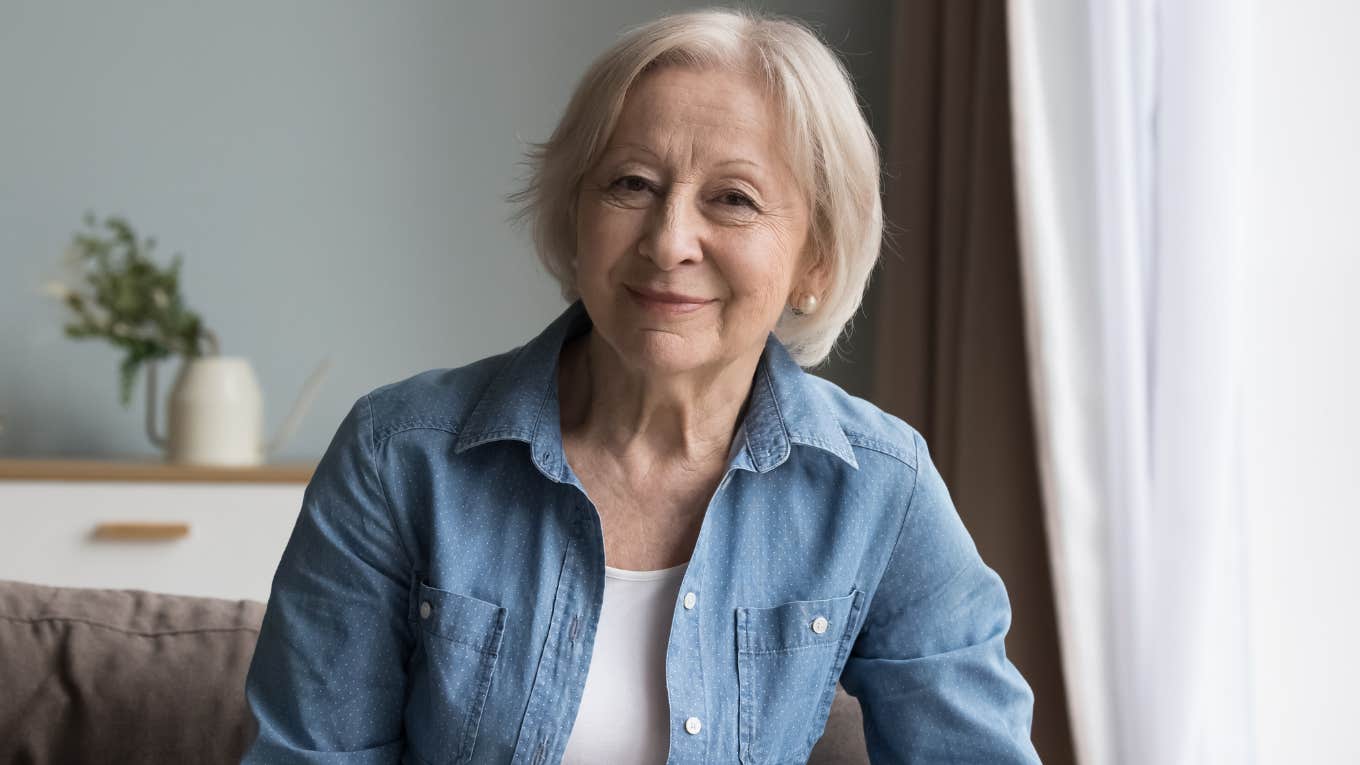 fizkes | Shutterstock
fizkes | Shutterstock As women get older, they tend to grow more confident, less impacted by the rigid social norms and expectations that push them to care more about external validation than well-being. According to a study conducted by Talker Research, the majority of women over 60 care more about their health and well-being than about appearing "beautiful" to other people.
From saying "no" to calling out misbehavior, if a woman uses these phrases as she gets older, she doesn't care one bit what you think of her. Because alongside that kind of confidence and self-assuredness, she's also an advocate for herself in conversations and social interactions.
If a woman uses these 11 phrases as she gets older, she doesn't care one bit what you think of her
1. 'You're entitled to your opinion'
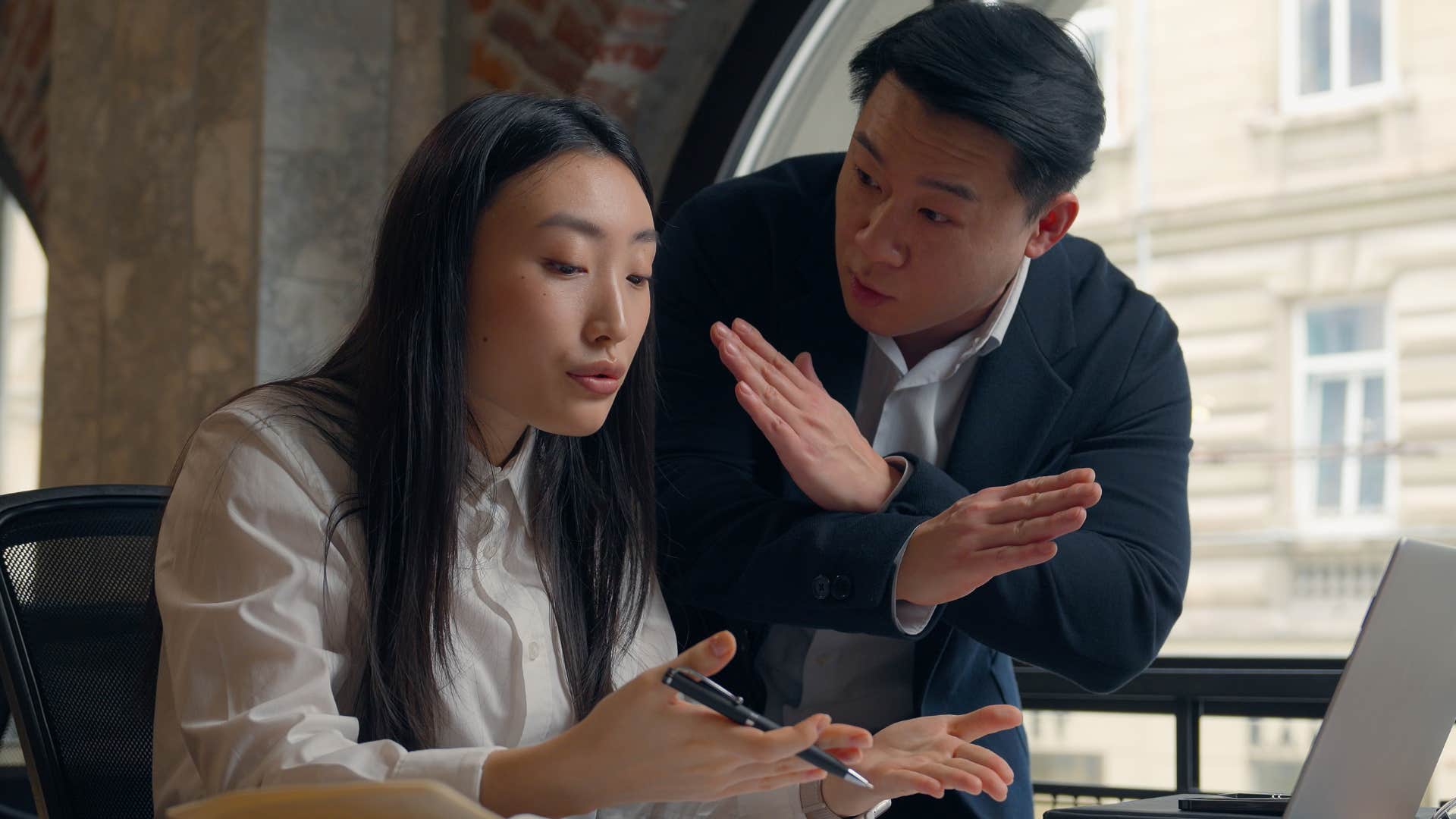 MAYA LAB | Shutterstock
MAYA LAB | Shutterstock
Considering women are often criticized for being confident and assertive — taught from a young age to people-please and maintain their inferior position in society — it's not surprising that they stop appealing to male validation and acceptance as they get older and more confident. It's not a defense mechanism to avoid people who push them into a rigid box, they just don't care about their opinions.
If someone calls them a name, says they "don't like" something about their life, or judges their appearance, they don't get defensive or try to justify their life — they simply say, "you're entitled to your opinion" and walk away.
2. 'That's not my problem'
 Luis Molinero | Shutterstock
Luis Molinero | Shutterstock
If a woman uses a phrase like "that's not my problem," chances are she's finally grown out of the people-pleasing habits that so many young women are pressured into early in life. Like Harvard psychologist Debbie Sorensen suggests, these people-pleasing habits don't just set women up for emotional exhaustion, they also put them at risk for developing burnout by continuously putting other people's needs ahead of their own.
Instead of trying to appease everyone, do all the emotional labor in their relationships, or put their needs on hold for the sake of validation or acceptance, women who don't care a bit about what anyone thinks instead put themselves first.
3. 'Take it or leave it'
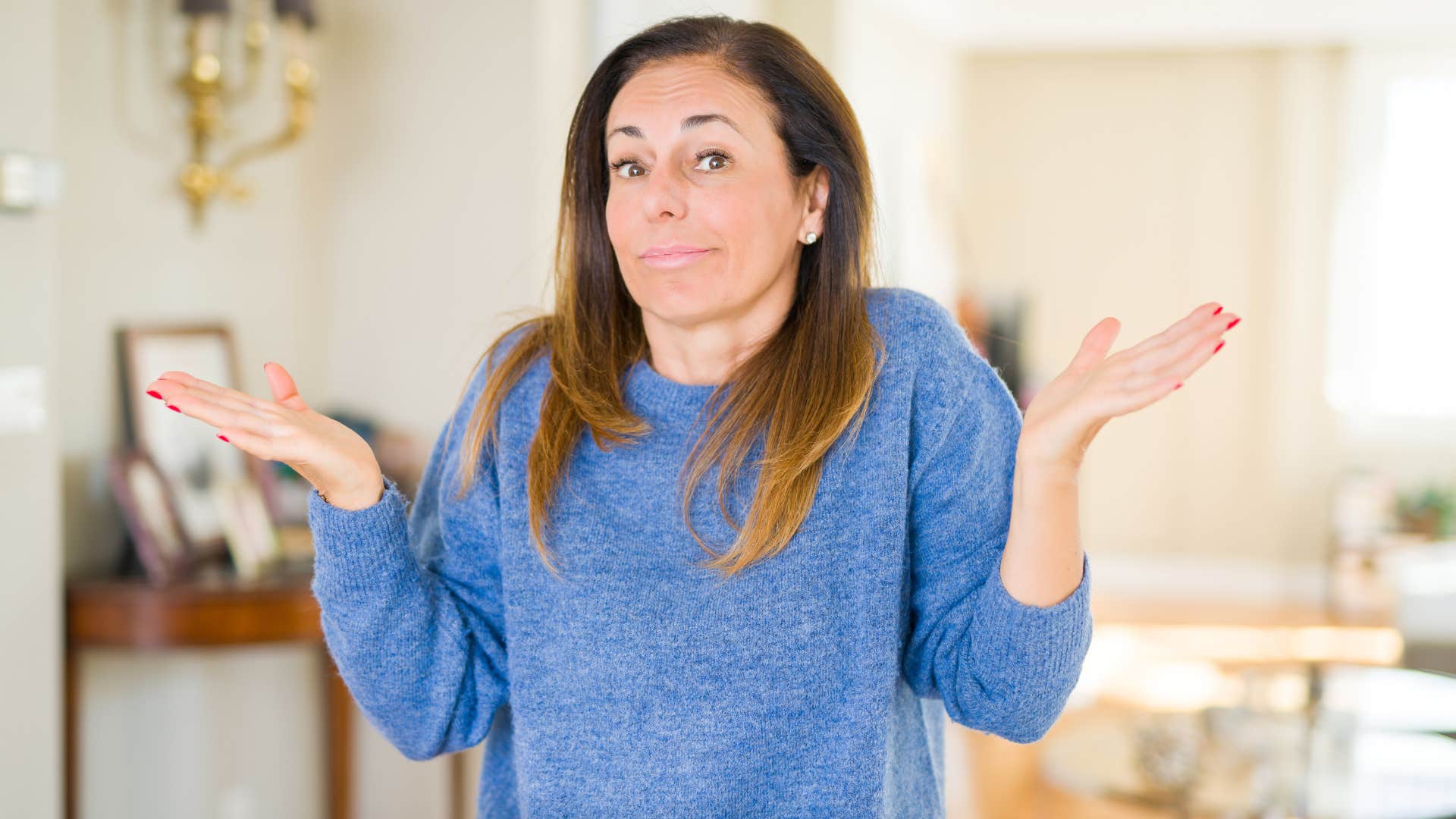 Krakenimages.com | Shutterstock
Krakenimages.com | Shutterstock
A study from Personality and Social Psychology Bulletin argues that people with stronger support systems are often more likely to be authentically themselves. That's why women tend to thrive with smaller social circles and more meaningful relationships as they get older — alongside their natural growth of personal self-esteem, they find friends and peers who ensure they're not sabotaging or sacrificing their authenticity for the sake of connection.
If a woman uses phrases like "take it or leave it" as she gets older, she doesn't care one bit what you think of her. She's more than willing to walk away from conversations or to end relationships if she doesn't feel seen or supported, especially if leaving someone behind is what she needs to continue living authentically.
4. 'I don't have time for this'
 YAKOBCHUK VIACHESLAV | Shutterstock
YAKOBCHUK VIACHESLAV | Shutterstock
Having the power of self-advocacy, especially later in life, in the workplace doesn't just make you a productive worker or a powerful leader, it also makes you an "invaluable collaborator." For women, that means maintaining their boundaries, saying "no" to work they don't have the time for, and growing their own personal confidence to thrive professionally.
However, women who don't care what other people think of them often use phrases like "I don't have time for this" outside of the workplace as well. When they're talking to someone who doesn't listen, doesn't respect them, or is acting wildly entitled, they're more than happy to just walk away — rather than trying to seek their approval or acceptance.
The only opinions that matter to these empowered women are those of the people they love and trust and, of course, their own.
5. 'This conversation is over'
 Krakenimages.com | Shutterstock
Krakenimages.com | Shutterstock
Knowing when to walk away from a toxic relationship or unhealthy conversation can be difficult, but strong and empowered women tend to practice more as they get older. They've grown into their emotional intelligence and self-worth to the point that their relationships are a "choice," rather than a necessity to tolerate.
When they don't feel respected, a phrase like "this conversation is over" is common, even if it's uncomfortable or blunt for other people to receive.
6. 'Respect is mutual, not automatic'
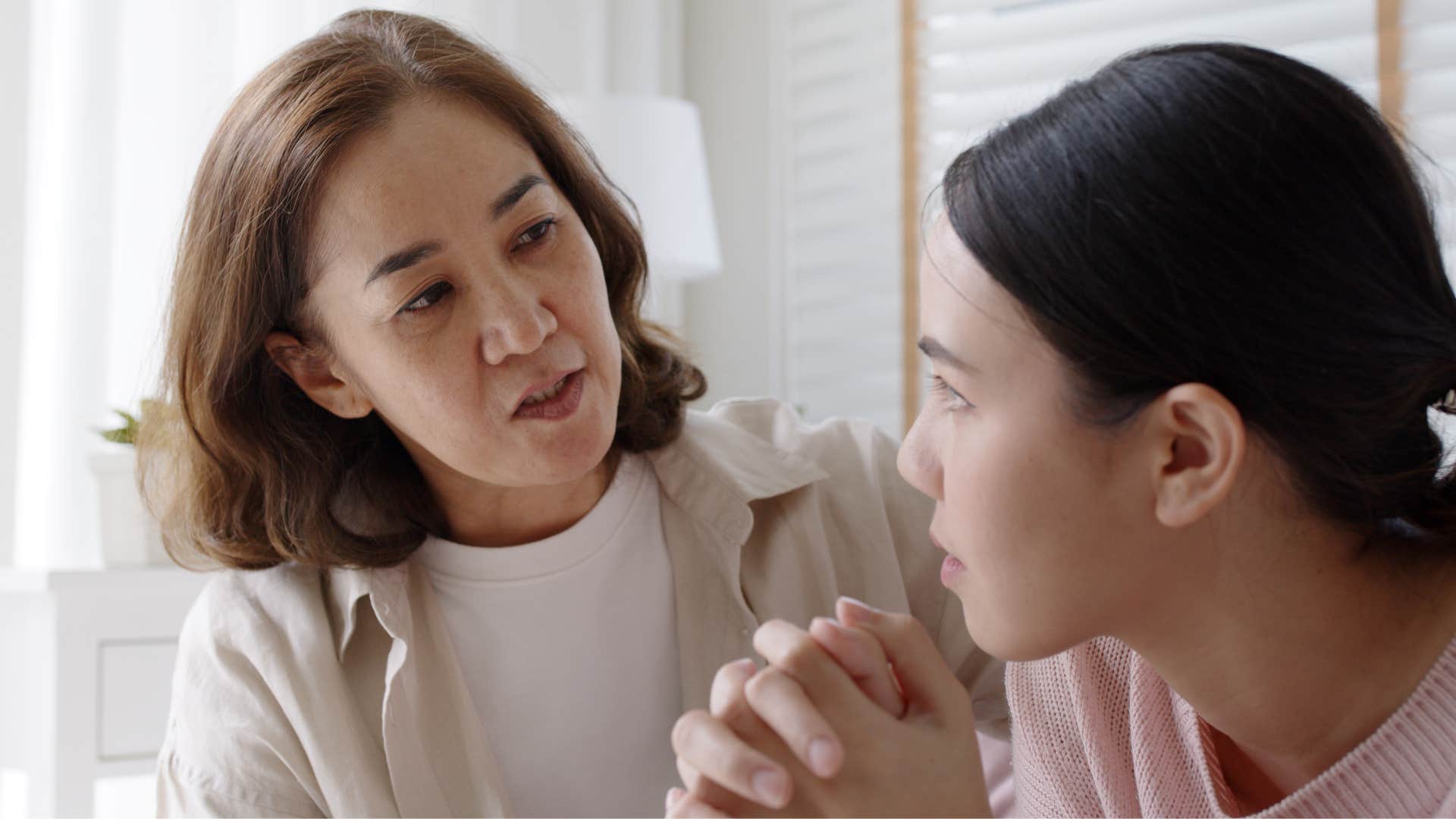 Chay_Tee | Shutterstock
Chay_Tee | Shutterstock
If a woman says "respect is mutual, not automatic," she's not just confident and self-assured, she's also right. Like a study from Ethics and Education explains, there are some "respect-due" traits that people should feel entitled to getting from everyone, but the other things — like access to a conversation, empathy, or grace — are earned.
If a woman is being neglected, disrespected, or invalidated, she has the power to do whatever she pleases, whether that's getting up and walking away or calling out their behavior directly. Especially in a world that condemns women for being outspoken and personally advocates for themselves, it's this kind of behavior from aging women that serves as an empowering example of self-assuredness and self-love.
7. 'I'm not here to impress anyone'
 shurkin_son | Shutterstock
shurkin_son | Shutterstock
Whether it's in the workplace or meeting new people, the last thing a woman is worried about is trying to impress people by holding back her personality or restraining her own needs. If someone doesn't appreciate her authenticity, self-assuredness, or appearance, that's their problem — not hers.
Not only do women grow more confident with age, but they also tend to let go of societal norms and expectations that keep them stuck in a confined box. They're willing to advocate for themselves because they're not worried about people-pleasing or ensuring other people see them in a certain way.
8. 'I'm not apologizing for my decisions'
 Krakenimages.com | Shutterstock
Krakenimages.com | Shutterstock
Women often get into a habit, largely because social expectations pressure them to, of over-apologizing and trying to justify their own decisions to other people. Whether it's their choice of singlehood, a career path, or how they spend their free time, this kind of apologetic nature is something self-assured older women just don't care to entertain.
They make their decisions in their best interests and often cultivate social circles that empower them to do so. When someone challenges them, that's simply "their opinion," and not one that they'll apologize for or explain.
9. 'I won't explain myself twice'
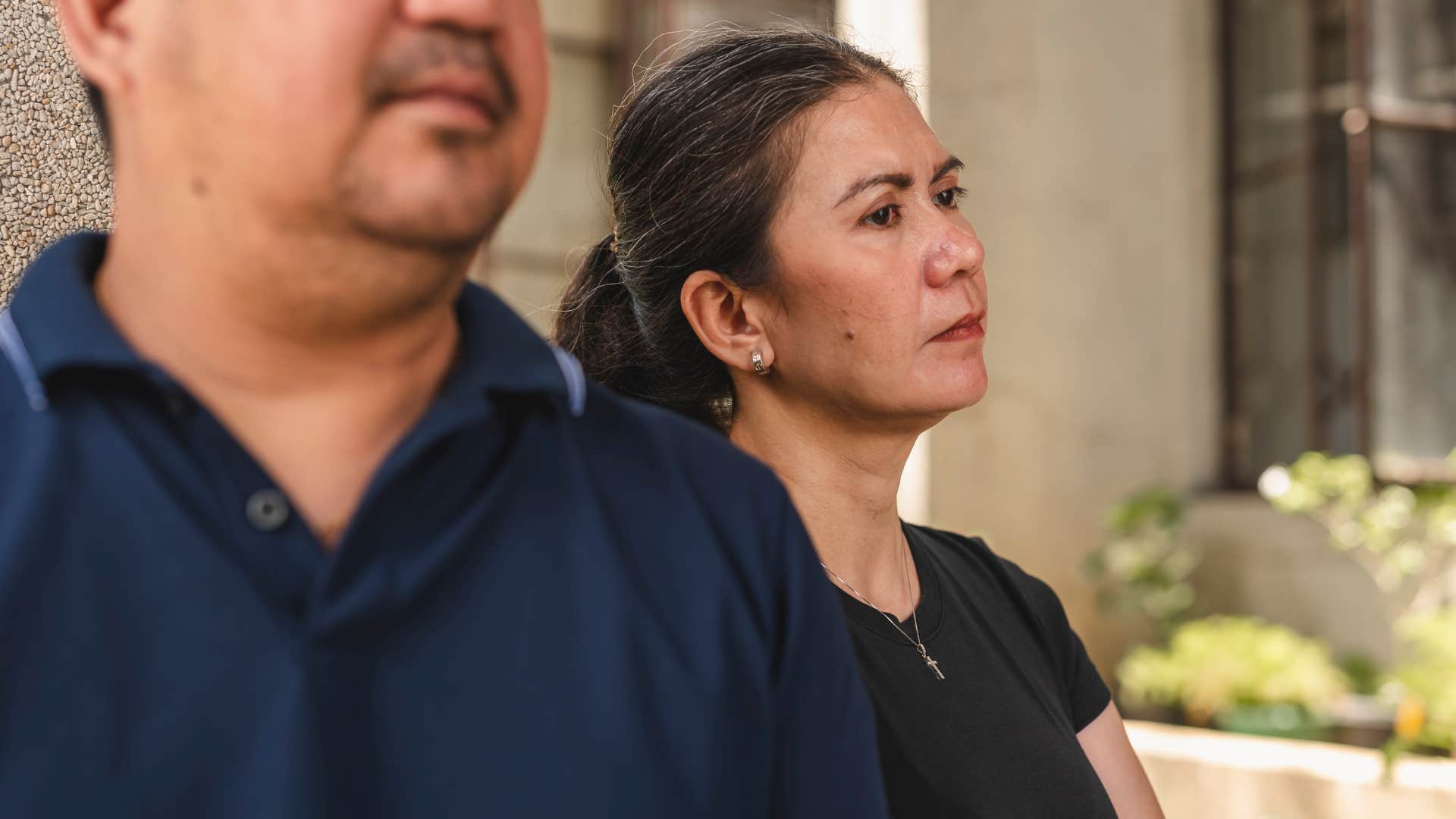 MDV Edwards | Shutterstock
MDV Edwards | Shutterstock
According to a study from Social Neuroscience, active listening is a powerful way to make people heard. When we perceive other people to be engaged when we're speaking, we're often happier and more connected. However, when people interrupt us, distract themselves with their phones, or stop listening, it does the opposite.
Truly confident and self-assured women don't beg for attention from anyone, whether it's at work, with their friends, or with a partner. If someone doesn't listen to them actively for the first time, they're not willing to put their own needs or time to the side to make life easier for them.
10. 'I'm not here to entertain you'
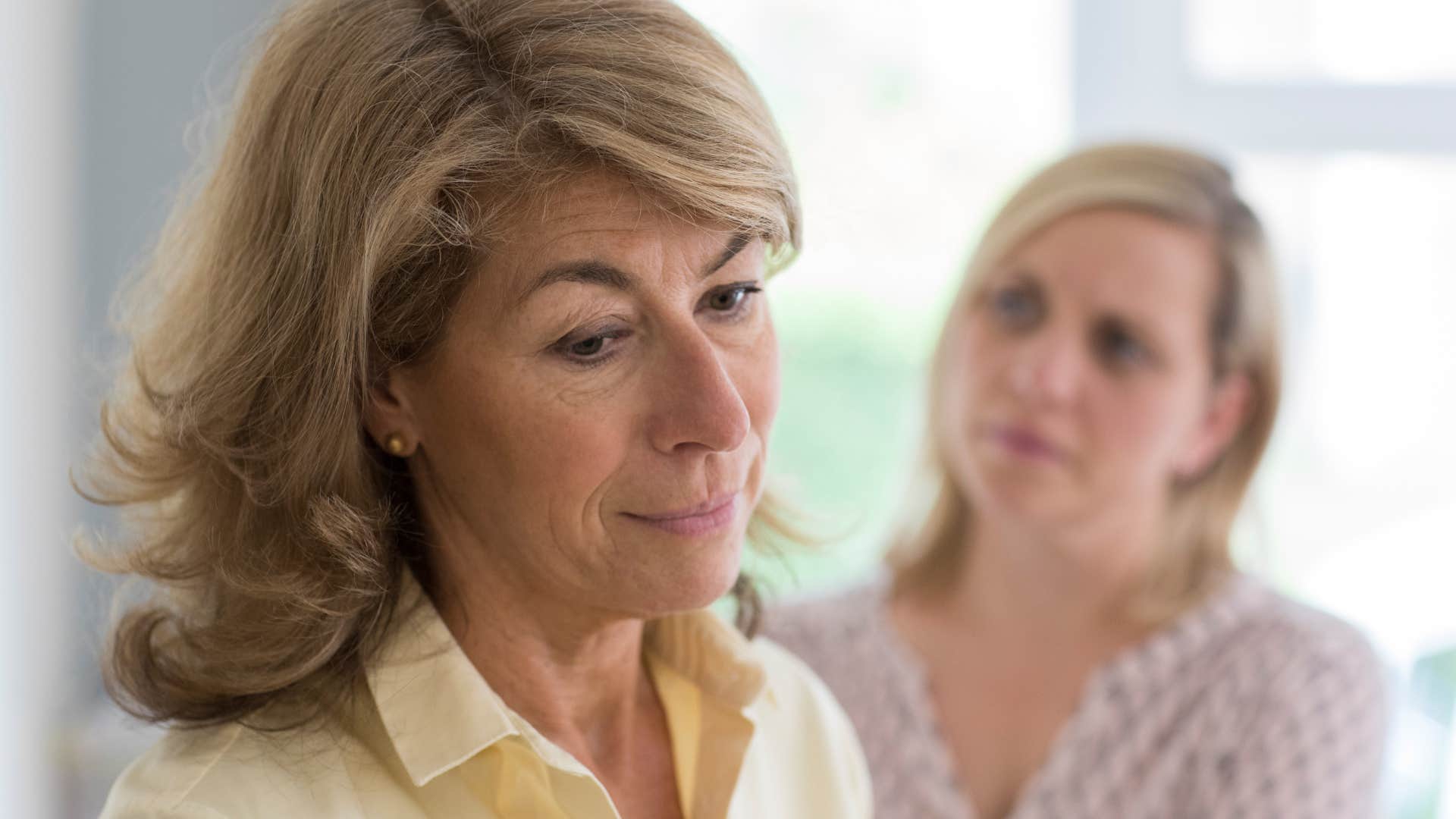 Daisy Daisy | Shutterstock
Daisy Daisy | Shutterstock
Many women take on "invisible labor" in their relationships — doing more cognitive and emotional work for their partners and kids to keep the peace — at least, according to a study from the University of Wisconsin-Madison. They're pressured to entertain people, facilitate conversations, and regulate other people's emotions, even at the expense of their own well-being.
However, a woman who uses phrases like "I'm not here to entertain you" is finally putting herself first after years of social expectations plaguing her life. She's interested in helping people, but at the end of the day, she's more worried about putting herself first.
11. 'No'
 Krakenimages.com | Shutterstock
Krakenimages.com | Shutterstock
Even if it seems simple and innocent, many women struggle with setting boundaries and saying "no" early in their lives. However, if a woman uses it as she gets older, it's clear that she's grown into her self-assuredness and doesn't care a bit about what you think of her.
Although it may occasionally make other people uncomfortable or annoyed, whether it's turning down social plans or work they can't manage in the workplace, it's a phrase that truly empowers women in their daily lives.
Zayda Slabbekoorn is a senior editorial strategist with a bachelor's degree in social relations & policy and gender studies who focuses on psychology, relationships, self-help, and human interest stories.

